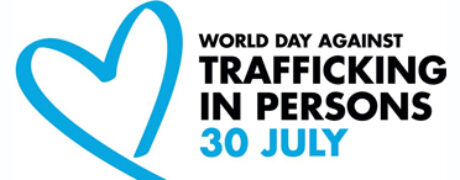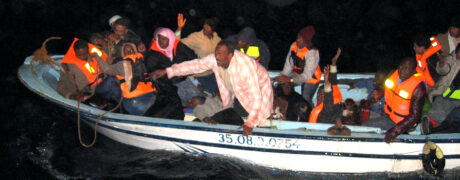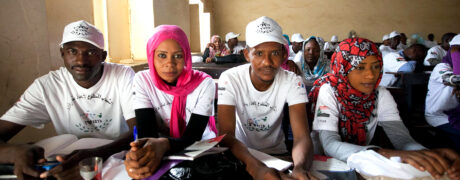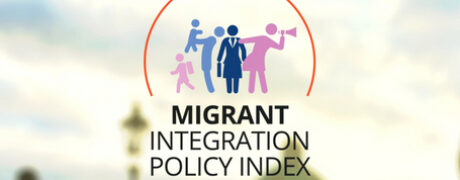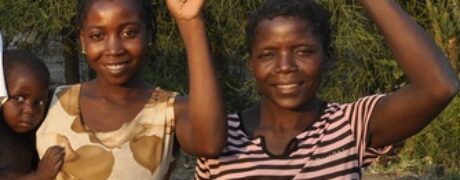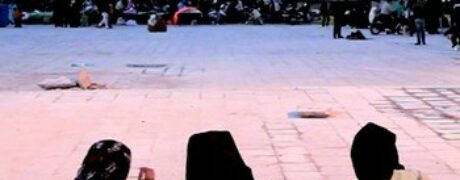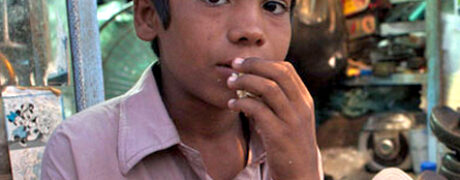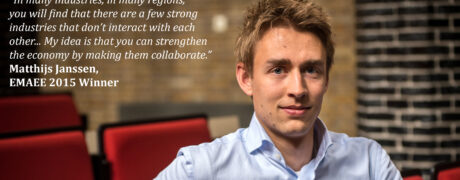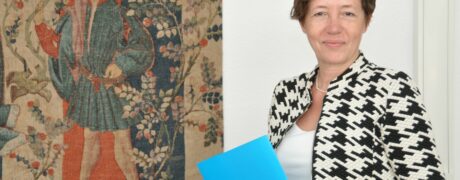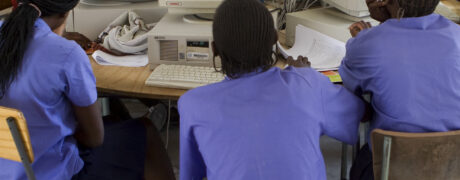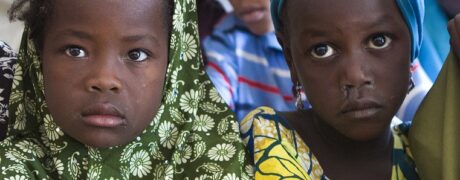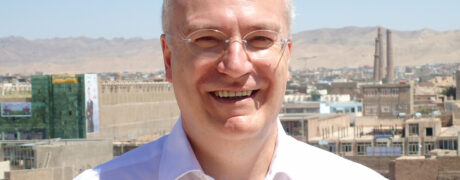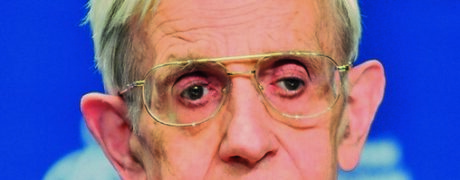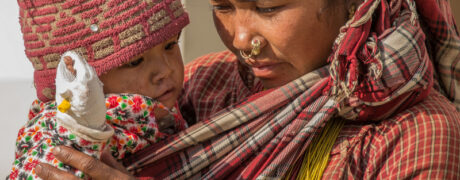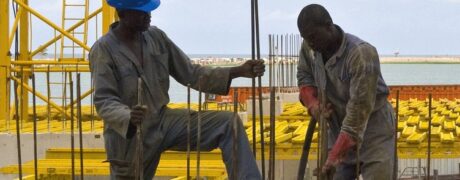- ABOUT US
- RESEARCH
- EDUCATION
- The Graduate School
- PhD Programme
- MSc Programmes
- Capacity Development
- News
- Design and Evaluation of Public Policies (DEPP)
- Design and Evaluation of Innovation Policies (DEIP)
- Evidence-Based Policy Research Methods (EPRM)
- Migration Management Diploma Programme (MMDP)
- Moving the Migration Policy Agenda Forward (MMPAF)
- Online Courses
- Short Courses (Masters)
- Tailor-made programmes
- UNU-MERIT, ITU Academy Training Centre
- Alumni
- Academic Funding
- NEWS
- EVENTS
- PUBLICATIONS
- LIBRARY
News
World Day vs. Trafficking in Persons, 30 July
27 July 2015
What is the difference between trafficking and smuggling? Can technology help turn the tables? How strong are legal protections worldwide? Just a few of the questions put to migration expert Dr. Melissa Siegel ahead of World Day against Trafficking in Persons, 30 July. What is the difference between...
Continue Reading →Migrants Arriving in Athens: No Reception & No Place to Go
15 July 2015
Greece has received unprecedented migrant arrivals over the past few years, being at the frontline of entry into the European Union. The EU’s Frontex agency has just released new figures showing that the Turkey-Greece border has again become the primary mode of entry into the EU, writes Dr. Ka...
Continue Reading →World Youth Skills Day: Becoming the Tools for Change
14 July 2015
How can young people help themselves, both practically and professionally? How can developing countries cut youth unemployment and realise their full potential? How can the United Nations University make a difference? We asked Ibrahima Kaba, a PhD fellow from Guinea in West Africa, and Diego Salama,...
Continue Reading →Migrant Integration: How Policies Shape Everyday Lives
13 July 2015
How do different countries deal with migrant integration? Do policies give immigrants the chance to survive or even excel? Or do policies act as barriers to integration? Just a few of the questions tackled by Dr. Özge Bilgili in the Migrant Integration Policy Index 2015. With the increase and divers...
Continue Reading →Closing Ceremony MPP Class of 2014-2015
07 July 2015
In June each year, the closing ceremony marks the end of classes for our Master’s students in Public Policy and Human Development (MPP). Many leave Maastricht to write their thesis, do field research, start an internship or enjoy their summer holiday. The MPP closing ceremony is therefore the ...
Continue Reading →Greece & the Euro Crisis: A Warning from History
03 July 2015
How much will other Europeans lose if Greece exits the euro? Will the ‘contagion’ spread to Italy, Portugal or Spain? Is this as much of a political as an economic crisis? Ahead of this weekend’s crucial referendum, these were among the questions put to Dr. Thomas Ziesemer — one of 70 Du...
Continue Reading →Mozambique at 40: Achievements & Challenges
25 June 2015
In 40 years of independence, Mozambique has made real progress: it is one of the fastest growing economies in the world, democratic institutions have been deepened, public services have been reformed, and human development indicators have significantly improved. Yet despite these achievements, great...
Continue Reading →Towards Modern Energy for All: Milan Expo 2015
23 June 2015
Around 3 billion people worldwide use traditional biomass and coal as their main sources of fuel at home, and 1.4 billion people have no access to electricity. To remedy this, the UN launched a call for universal access to modern energy in 2012, with a target year of 2030. Prof. Shyama V. Ramani sen...
Continue Reading →World Refugee Day, 20 June: New Highs, New Flows
18 June 2015
There are now 59.5 million refugees worldwide, according to the latest figures from UNHCR. Ahead of World Refugee Day, 20 June 2015, we assembled a roundtable of experts — Prof. Ronald Skeldon, Dr. Melissa Siegel, and Dr. Katie Kuschminder — to put the major issues in perspective: from M...
Continue Reading →World Day Against Child Labour: How Many Have to Work?
11 June 2015
UNICEF’s latest report on the ‘State of the World’s Children’ says there are 150 million 5-to-17-year-olds caught up in the world of work. Ahead of ‘World Day Against Child Labour‘, 12 June, Dr. Sepideh Yousefzadeh looks at the essential context with a case study from Iran. I...
Continue Reading →European Meeting on Applied Evolutionary Economics 2015
03 June 2015
For a long time, the divide between ‘developed’ and ‘developing’ economies has been wide and persistent, giving rise to development economics as a specialised field. Yet with economic interactions between nations rising strongly over the past decades, economics in a broad sen...
Continue Reading →World Environment Day, 5 June: Can Technology Save Us?
02 June 2015
Technology can buy us time in a failing environment, but ultimately it will not save us. To be effective, environmental policies need support from all levels of society: from national ministries to local communities. These are just two of the messages from Prof. René Kemp ahead of World Environment ...
Continue Reading →New Professor: Franziska Gassmann
29 May 2015
Dr. Franziska Gassmann was made Professor in the Department of Social Security Studies at the Bonn-Rhein-Sieg University of Applied Science (HBRS), Germany, on 28 May 2015. She was welcomed and confirmed in the role by University President Prof. Hartmut Ihne, in a signing ceremony attended by Dr. Es...
Continue Reading →eLearning Africa 2015: Weighing the Risks & Rewards of ICT
29 May 2015
How far can ICT help education and development in Africa? Will too much emphasis on ICT cause a ‘digital divide’, leading to ever greater inequalities? Dr. Mindel van de Laar sends her insights from this year’s eLearning Africa conference. In the heart of the Ethiopian capital, the...
Continue Reading →Nigeria 2015: What Should Complete Buhari’s Agenda?
28 May 2015
Tomorrow, 29 May, will see the inauguration of Muhammadu Buhari as Nigerian president — the first time an opposition candidate has defeated the incumbent since independence in 1960. But what should be his priorities? PhD fellow Ayokunu Adedokun proposes a seven-point agenda – four alread...
Continue Reading →Displacement, Refugees & the New World Disorder: Seminar
26 May 2015
In a seminar on 26 May 2015, Ewen MacLeod, Head of the Policy Development and Evaluation Service (PDES) of the UN Refugee Agency, focused on the impact of emerging global trends – population growth, climate change, urbanisation, and migration – on current arrangements for the management of forced di...
Continue Reading →An Homage to John Nash: The Genius of Game Theory
26 May 2015
Nobel laureate John Nash — who died on 23 May — stands in the same line as Smith, Ricardo, Walras and Keynes in having shaped economic thinking. But he was even more, argues Prof. Shyama V. Ramani in this tribute to the genius of game theory. Unlike other giants of economic philosophy, N...
Continue Reading →News from Nepal: PhD Fellow’s Earthquake Report
18 May 2015
Nepal was struck by a 7.8-magnitude earthquake on 25 April — a disaster that killed thousands of people. Many more were injured or displaced, including countless children. PhD fellow Vincenzo Vinci, who works for UNICEF Nepal, sent this update as part of a Q&A with GPAC² Director Dr. Minde...
Continue Reading →World Telecommunication & Information Society Day: 17 May
15 May 2015
Innovations from ICT — and the roll out of these technologies — touch every aspect of our lives. They are shaping political agendas and can help us achieve our development goals. Ahead of this Sunday’s ‘World Telecommunication & Information Society Day‘, PhD fellow...
Continue Reading →Nigeria 2015: What Next for Buhari’s Agenda?
14 May 2015
In an earlier post, PhD fellow Ayokunu Adedokun outlined a bold agenda for the president-elect — issues that he says are key to long-term peace, security and inclusive development in Nigeria. In this second post, he looks at energy and economic reforms. Diversification of the economy Under Pre...
Continue Reading →© 2024 UNU-MERIT | Maastricht University


